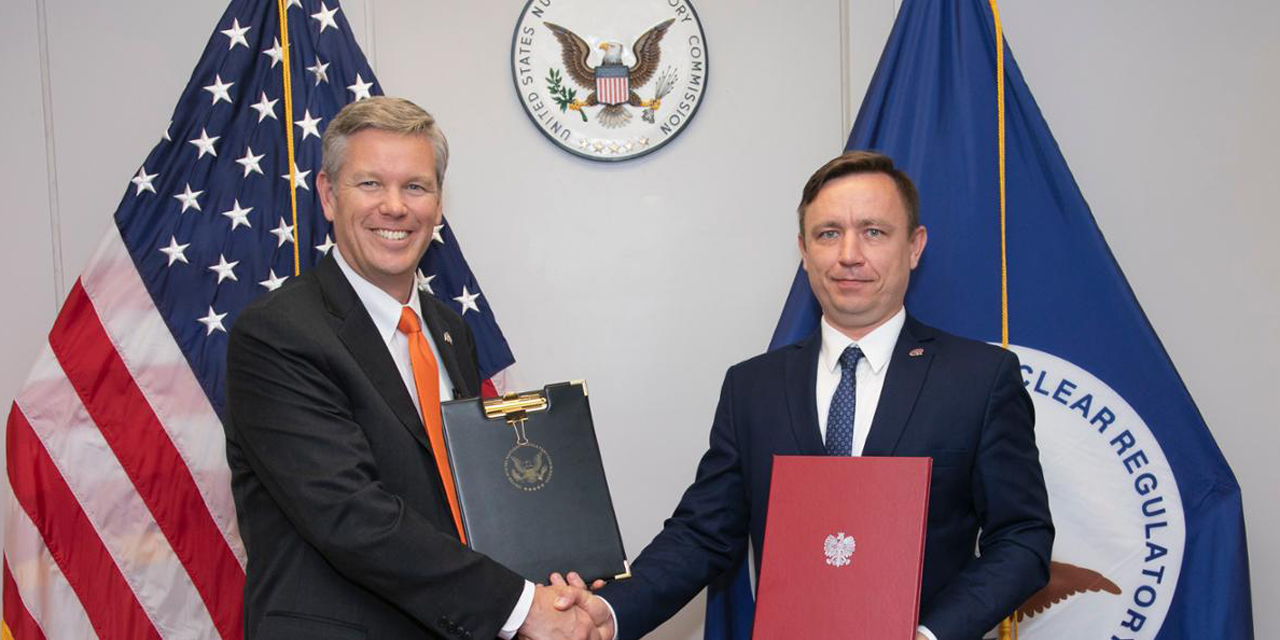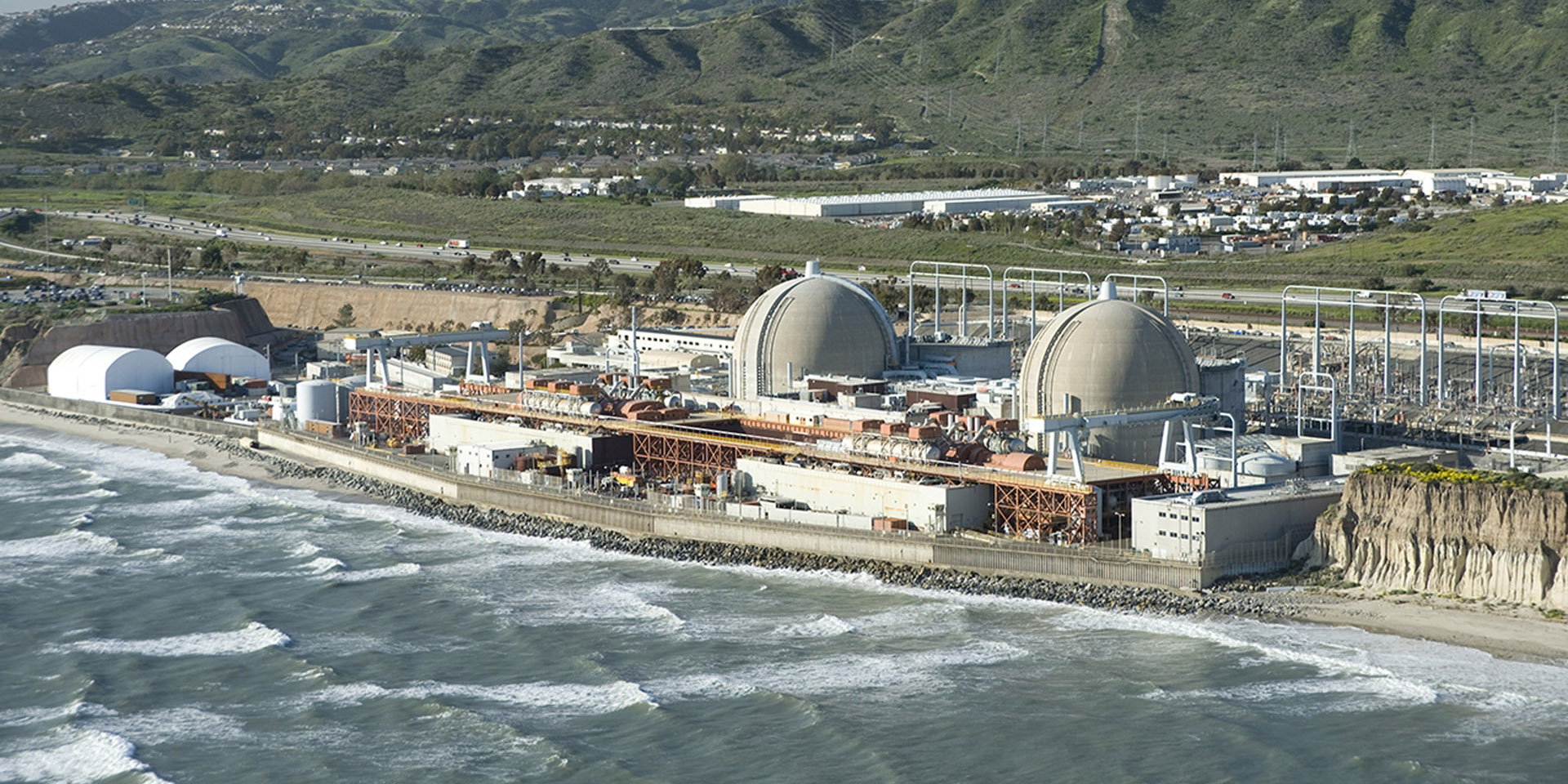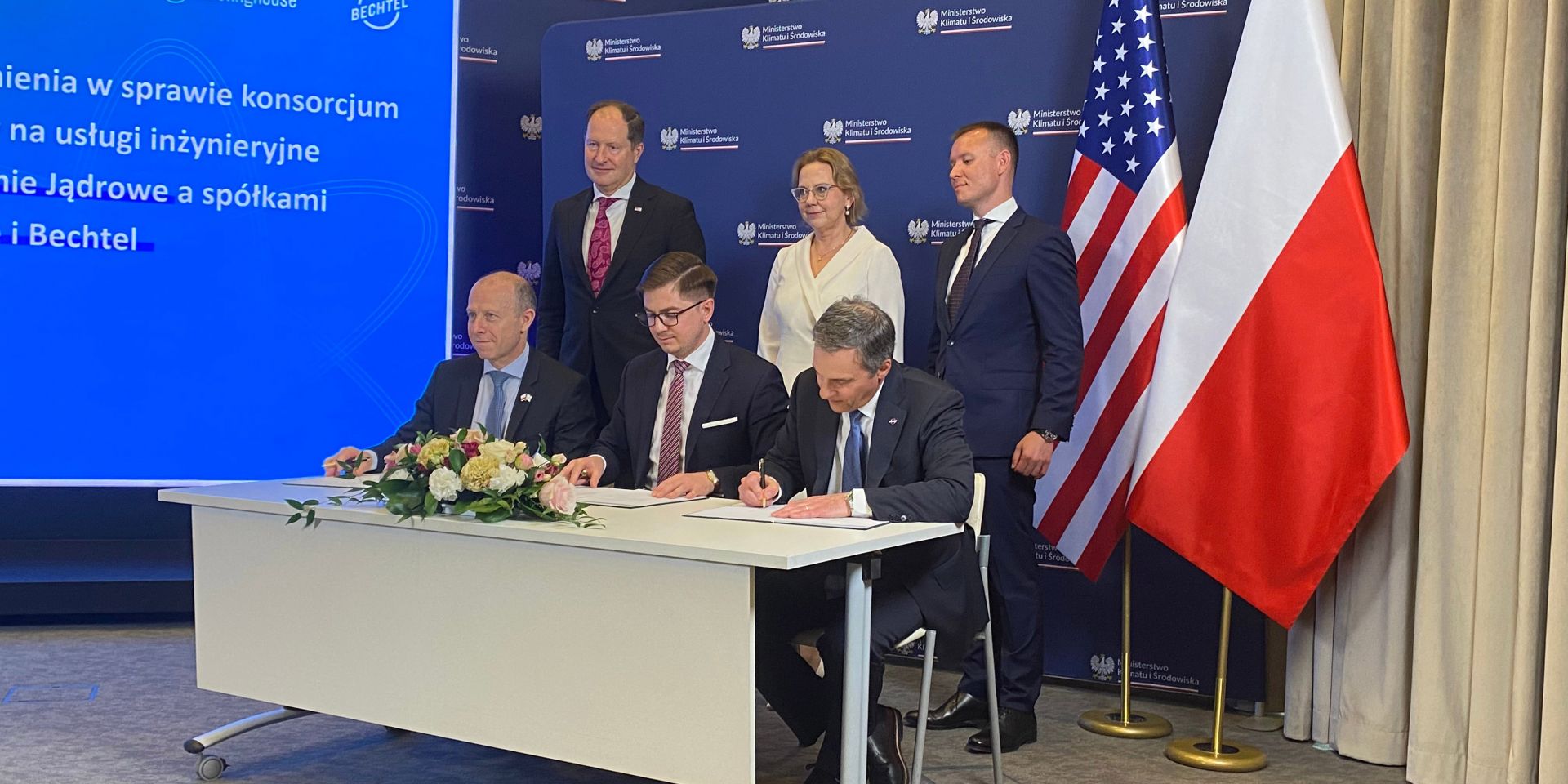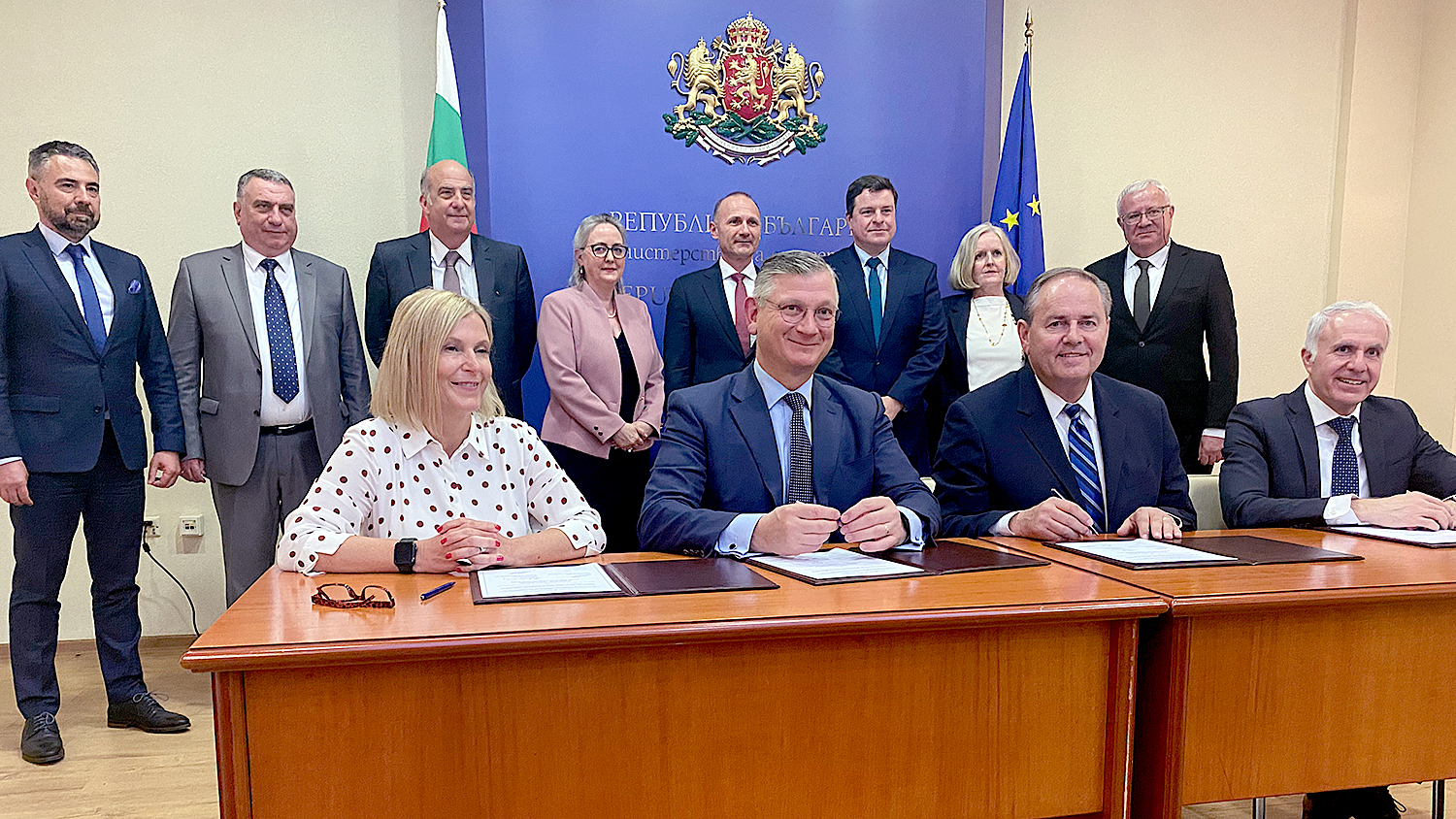From left, NRC chair Christopher Hanson and PAA president Andrzej Głowacki sign a cooperation agreement in Washington, D.C. (Photo: PAA)
The Nuclear Regulatory Commission and Poland’s National Atomic Energy Agency (PAA) have renewed their cooperation agreement for the next five years.
San Onofre Nuclear Generating Station. (Photo: Southern California Edison)
Ten years ago this month, on June 7, 2013, Southern California Edison (SCE) communicated the decision to permanently shutter the San Onofre Nuclear Generating Station (SONGS). The decision set in motion the decommissioning of a plant that had provided steady baseload power for the region since 1968 during a period of tremendous growth in the western United States. In the end, issues presented by the planned replacement steam generators that were intended to support future plant operations proved too large of a hurdle, and the plant was forced to retire.
The Rivne nuclear power plant, with Units 1 and 2 in the foreground. (Photo: Westinghouse)
Westinghouse Electric Company this week inked agreements with two of its European customers—Ukraine reactor fleet operator Energoatom and Bulgaria’s Kozloduy NPP–Newbuild, a firm established in 2012 to commission new nuclear power capacity at Kozloduy, Bulgaria’s only nuclear power facility.
The NuScale control room simulator has been used to showcase the plant’s design, prototype new displays, and test the operator and supervisor procedures in a fully digital control room. (Photos: NuScale Power)
NuScale Power has signed an agreement with training and consulting firm Accelerant Solutions for the development and implementation of a reactor operator training program, the Portland, Ore.–based small modular reactor developer announced on June 7.
(Photo: Nielander/WikiCommons)
Westinghouse Electric Company says its eVinci microreactor technology is “100 percent factory built and assembled before it is shipped in a container to any location.” And “any location” is not restricted to planet Earth, given the company’s goal of sending a scaled-down version of eVinci to the lunar surface or on a mission to provide power in other space applications.
Next Generation MG Control Power Cabinets Installed
Westinghouse Parts Business (WPB) is proud of the first next generation Motor Generator (MG) Set System fully operational at Palo Verde Generating Station. The team completed a first-of-a-kind (FOAK) implementation and installation at the power plant operated by Arizona Public Service (APS), including the next generation MG Control Power Cabinets and new MG Sets. Additionally, Westinghouse installed the new ARCH (Advanced Rod Control Hybrid) system. These systems were installed in a single outage providing additional synergies and cost savings to operations.
Seated, from left, are Patrick Fragman, CEOof Westinghouse; Łukasz Młynarkiewicz, acting president of PEJ; and Craig Albert, president and chief operating officer of Bechtel. Standing, from left, are Mark Brzezinski, U.S. ambassador to Poland; Anna Moskwa, Poland’s minister of climate and environment; and Mateusz Berger, Poland’s government plenipotentiary for strategic energy infrastructure. (Photo: Westinghouse)
Westinghouse Electric Company, Bechtel, and Polish utility Polskie Elektrownie Jądrowe (PEJ)—the three firms leading the effort to build Poland’s first nuclear power plant—have announced the signing of a new agreement that defines the main principles of cooperation on the project’s design and construction and confirms the implementation of its next major stage.
The Shippingport Atomic Power Station in Shippingport, Pa., the first full-scale nuclear power generating station in the United States, began operating in 1957.
Serving as the world’s first scalable nuclear power plant, Shippingport Atomic Power Station led the way for today’s nuclear generation fleet. Shippingport was centrally located roughly 25 miles from Pittsburgh, Pa., to provide electrical generation for many end-users. Shippingport also served as an experimental reactor that allowed engineers and designers the ability to test different core designs, and as such, the site housed additional testing equipment otherwise not commonly seen. The primary goal of Shippingport was always to generate electricity; however, its ability to function as an experimental reactor served utilities in further development of scalable nuclear generation.
Westinghouse chief executive officer Patrick Fragman meets with Dominion Energy CEO Bob Blue on May 15 in Washington, D.C. (Photo: Westinghouse)
Westinghouse Electric Company has signed a contract with Dominion Energy to design, manufacture, and deliver replacement steam generators for Virginia’s Surry plant, the nuclear technology firm announced Tuesday.
A cutaway depiction of the AP300 SMR. (Image: Westinghouse)
Just days after immediately achieving key-player status in the small modular reactor market with the unveiling of its AP300 SMR, Westinghouse Electric Company on May 9 announced the filing of the new unit’s preapplication regulatory engagement plan with the Nuclear Regulatory Commission.
The plan outlines the preapplication activities Westinghouse intends to carry out with NRC staff to support the AP300’s licensing. According to the announcement, the plan documents the basic design philosophy of the technology, an overview of the proposed licensing approach, and a timeline for the planned preapplication interactions between the NRC and Westinghouse, with the goal of soliciting agency feedback on noteworthy topics.
Rendering of a Westinghouse AP300 plant. (Image: Westinghouse)
At a virtual press conference this morning, Westinghouse Electric Company president and chief executive officer Patrick Fragman announced the launch of the AP300 small modular reactor, a 300-MWe, 900-MWth single-loop pressurized water reactor based on the company’s larger AP1000 unit. Fragman was joined at the conference by David Durham, president of energy systems for Westinghouse, and Rita Baranwal, the firm’s chief technology officer. The company also released a short video introducing the AP300 on YouTube.
Various officials (back row) look on at the fuel supply contract signing in Sofia, Bulgaria. Front row, from left: Angie Darkey, Uranium Asset Management’s managing director; Boris Schucht, Urenco CEO; Tim Gitzel, Cameco president and CEO; and Aziz Dag, Westinghouse senior vice president of global BWR & VVER fuel business.
Canada’s Cameco and U.K.-based Urenco last week jointly announced the signing of agreements to become part of a Westinghouse-led fuel supply chain for Bulgaria’s Kozloduy nuclear power plant. (Also included in the partnership is Uranium Asset Management.)
















